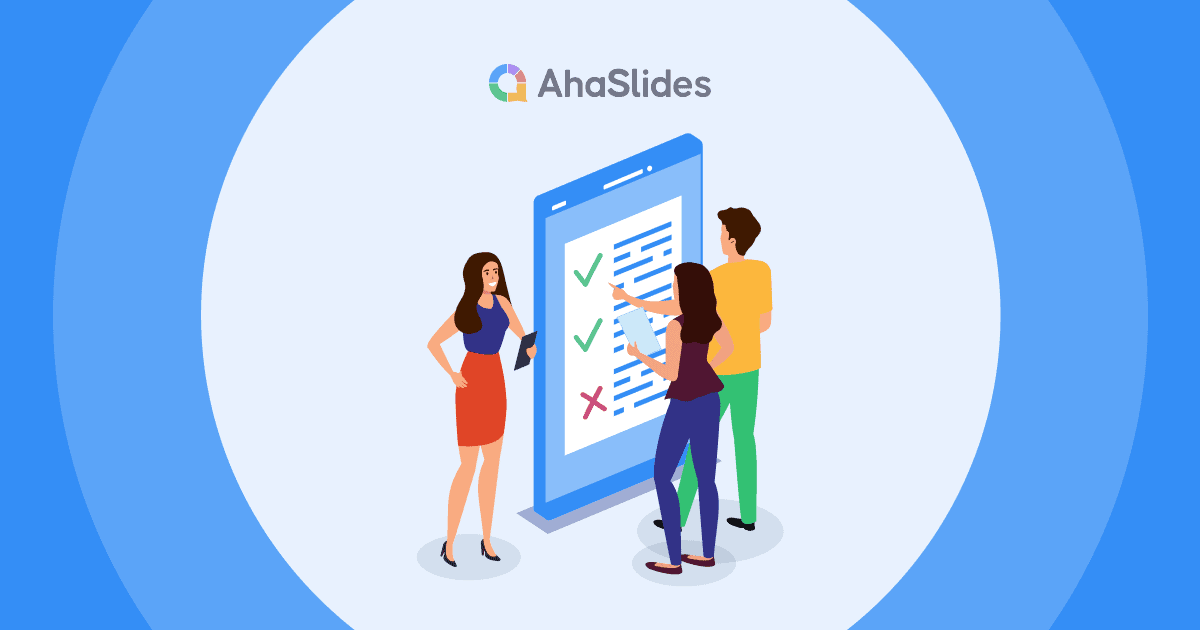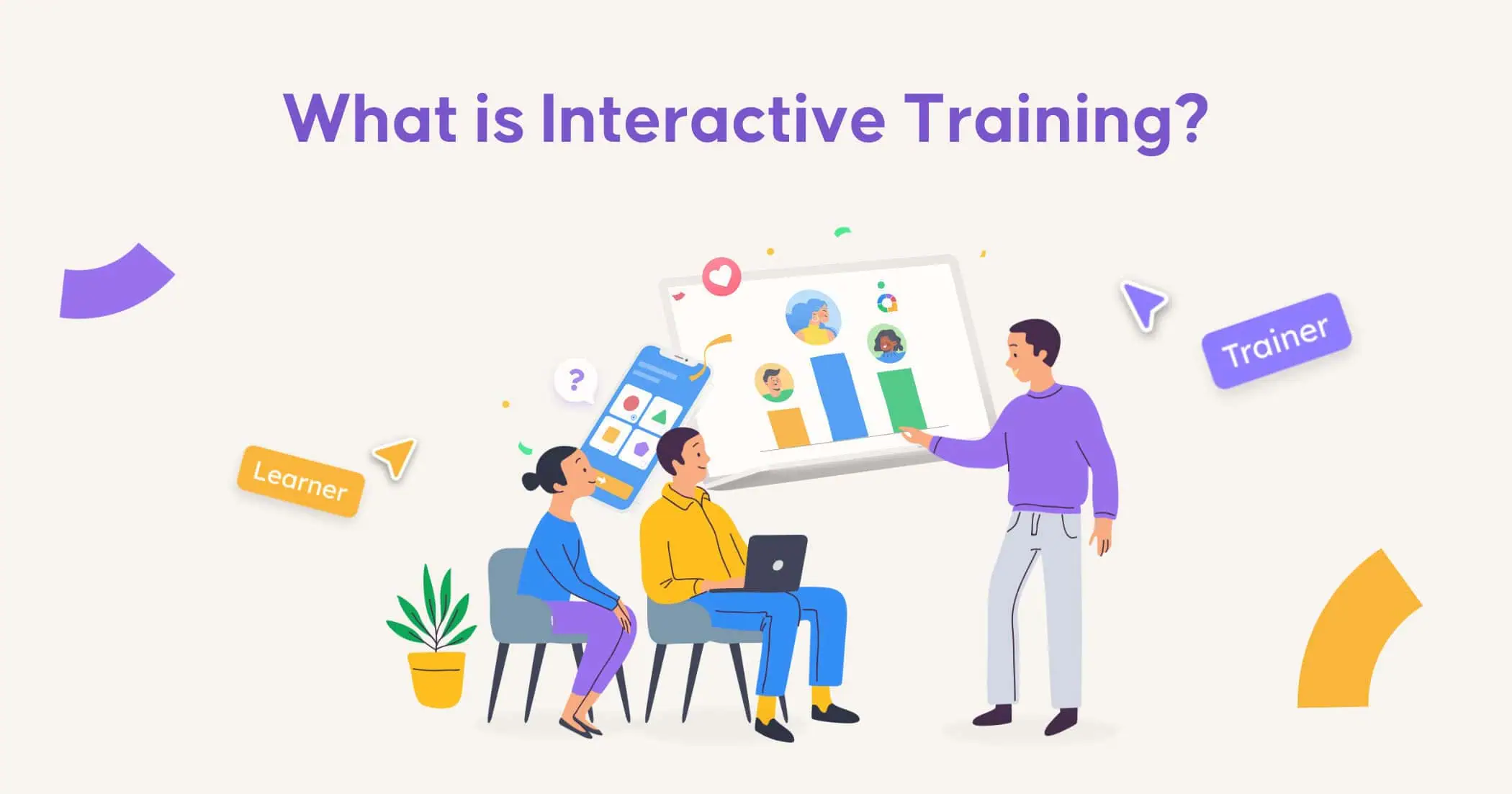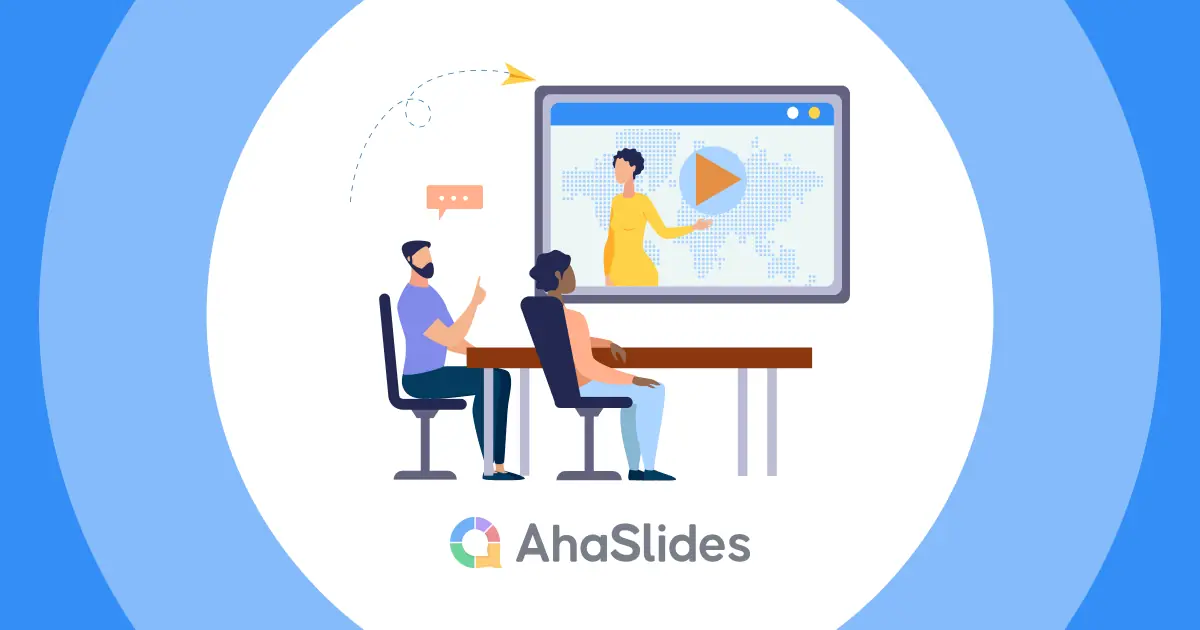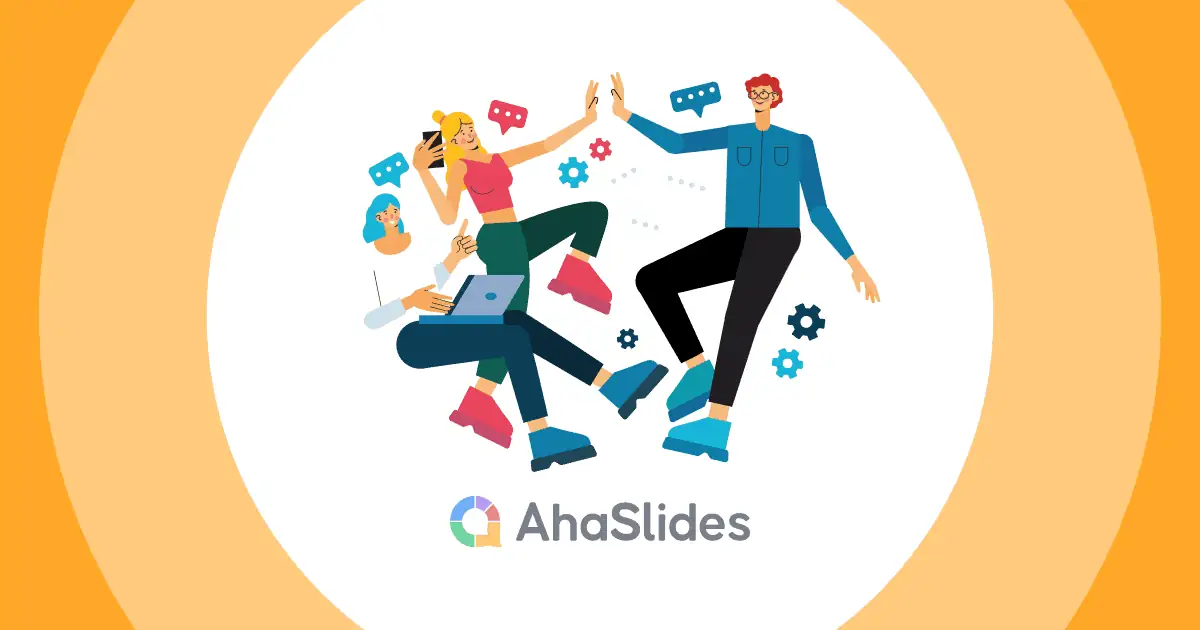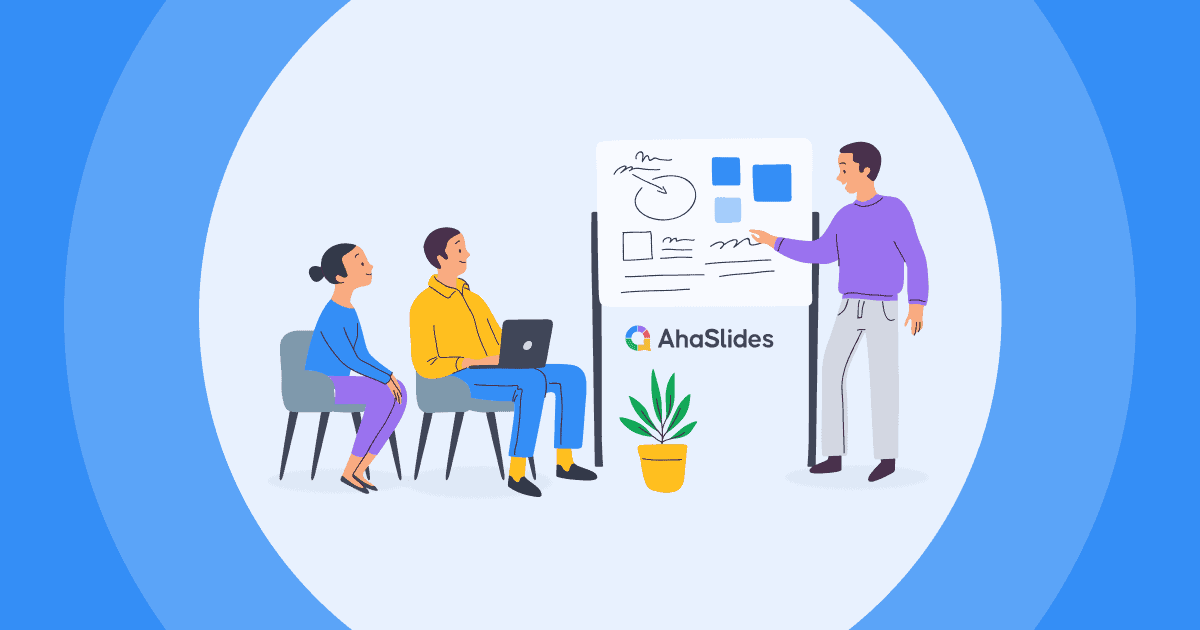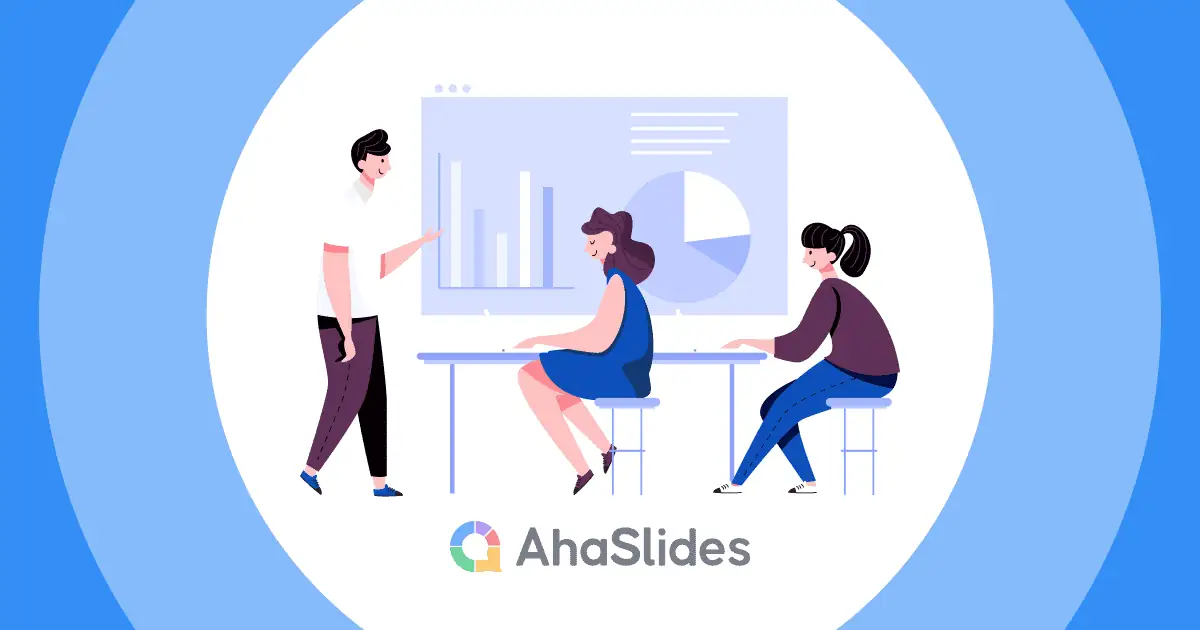Estimated to be a $325 billion industry in 2025, the training and development sector is MASSIVE.
With remote and hybrid work models here to stay, the need for sharp facilitation is more important than ever. After all, investing in lifelong learning is proven to pay dividends in your capabilities later.
Whether you lead meetings at your company or dream of becoming a professional facilitator, 2024 is calling your name. This guide will help you top up your game with the best facilitation training course offerings and tips to use as a facilitator!
Table of Contents
- Why Become a Facilitator in 2024?
- Top Facilitation Training Courses for Beginners
- Facilitation Training Courses For Specific Methodologies
- Facilitation Training Courses For Advanced Facilitators
- 5 Ways That AhaSlides Assists in Facilitation Training
- Key Takeaway
Why Become a Facilitator in 2025?
From tech startups to mega corporations, the demand for skilled facilitators is skyrocketing. Why? Because in this age of information overload and digital disconnect, the ability to bring people together, generate meaningful discussions, and guide productive collaboration is a superpower.
The top benefits of becoming a facilitator are:
- Great career prospects: Training facilitator jobs are predicted to grow by 14.5% in the next 10 years, with the salary averaging around 55K per year!
- Transferable skills, endless opportunities: Being a seasoned facilitator will equip you with the top-demanding skills in the market - training, coaching, consulting, event planning, you name it.
- Set your own schedule: As a contract facilitator, you can take on facilitation training projects on your schedule from anywhere. Pursue a freelance lifestyle with flexibility and independence.

When choosing a facilitation training course, you should consider your goals, preferred method of learning, skill gaps you have as well as your budget limit. Check out our recommended courses below for a more comprehensive picture👇
Top Facilitation Training Courses for Beginners
#1. Facilitation Fundamentals by Workshoppers
The course teaches facilitation theory, 7 foundational techniques, and tools for designing and running workshops effectively. It provides comprehensive training to master foundational facilitation skills from scratch through video lessons, workbooks and online community access.
After completing the course, you will know the lowdown to facilitate any session.
| Price | Method of delivery | Duration |
| $3,287 | Online | Self-paced |

#2. Facilitation: You Can Be a Facilitator by Udemy
Facilitation: You Can Be a Facilitator is a cost-effective course for anyone looking to develop facilitation skills for personal or professional use like leading meetings, workshops, and training programs.
Course content covers facilitation fundamentals like roles and mindsets, preparing and planning workshops, handling diverse groups, and common challenges and solutions.
| Price | Method of delivery | Duration |
| $12 (with discount) | Online | 29h 43m |
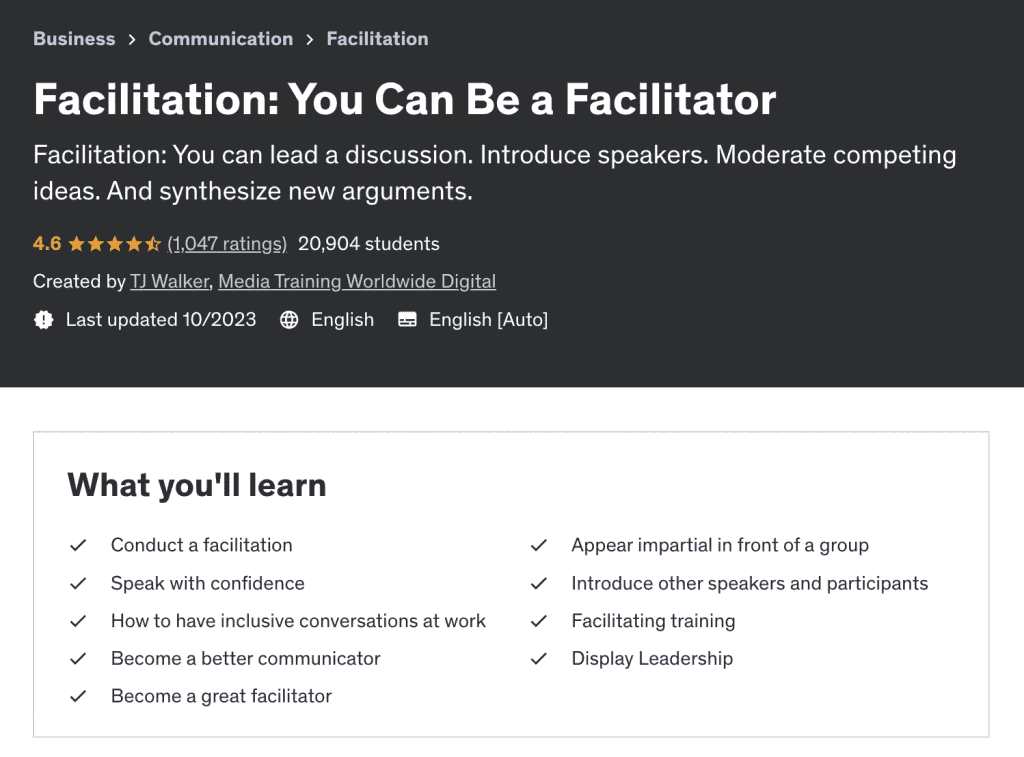
#3. Facilitation Skills by Unicaf University
This course offered by Unicaf University teaches the competencies needed for effective group facilitation. The course content is divided into 12 modules covering topics like understanding facilitation, process vs content, team development models, consensus building and such.
On completion, participants receive a certificate of participation from Unicaf University.
| Price | Method of delivery | Duration |
| $22 (with discount) | Online | Self-paced |
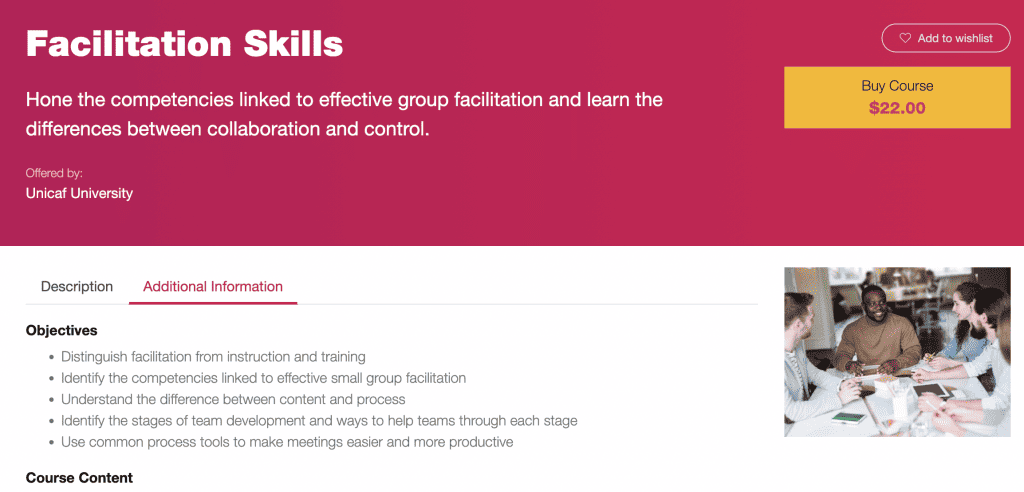
Facilitation Training Courses For Specific Methodologies
#4. Agile Coaching Skills - Certified Facilitator by Scrum Alliance
This certificate introduces the ACS-CF program for developing agile facilitation capabilities required for roles like scrum masters/coaches and improving team collaboration.
The learning objectives cover understanding the facilitator role, practising a neutral mindset, facilitating through conflict and team needs.
There are different times, languages and instructors to choose from based on your schedule.
| Price | Method of delivery | Duration |
| Varied | Online | Varied |
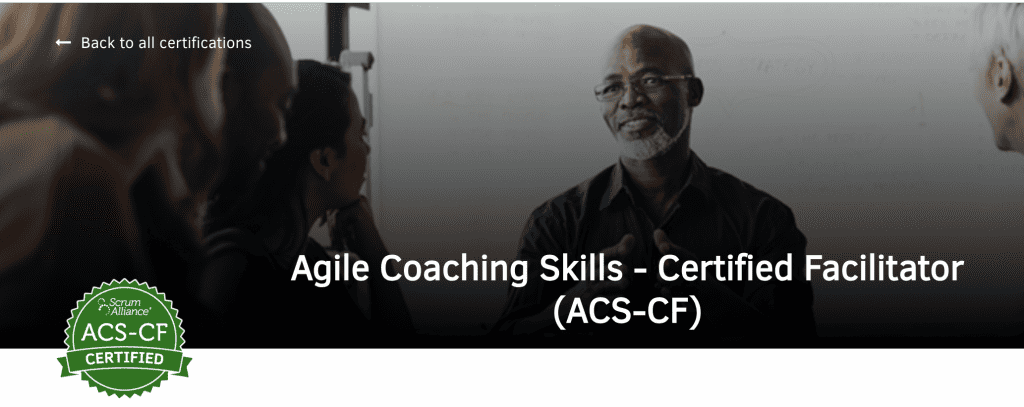
#5. Train the Trainer by ExperiencePoint
Train-the-Trainer is an approach to training that builds in-house facilitators to teach/facilitate workshops within their organisation.
Participants learn facilitation skills through interactive lessons, practice sessions and feedback from Expert Facilitators.
Although the certificate is open for new facilitators, you should possess a set of characteristics that adhere to the requirements stated on the website.
| Price | Method of delivery | Duration |
| Contact ExperiencePoint | Cohort-based/Self-directed | Varied |
Facilitation Training Courses For Advanced Facilitators
#6. Professional Facilitation Certification & Training by Voltage Control
This immersive online certification program will teach professional facilitation skills to leaders, executives, product managers, teachers, trainers and others. The skills learned are aligned with the International Association of Facilitators (IAF) competencies.
It consists of a Facilitation Foundations course, two Facilitation Electives modules, and a Capstone project over three months.
Lifetime access to Voltage Control's Facilitation Lab community is included for continued learning and networking.
| Price | Method of delivery | Duration |
| $5000 | Cohort-based/Self-directed | 3 Months |
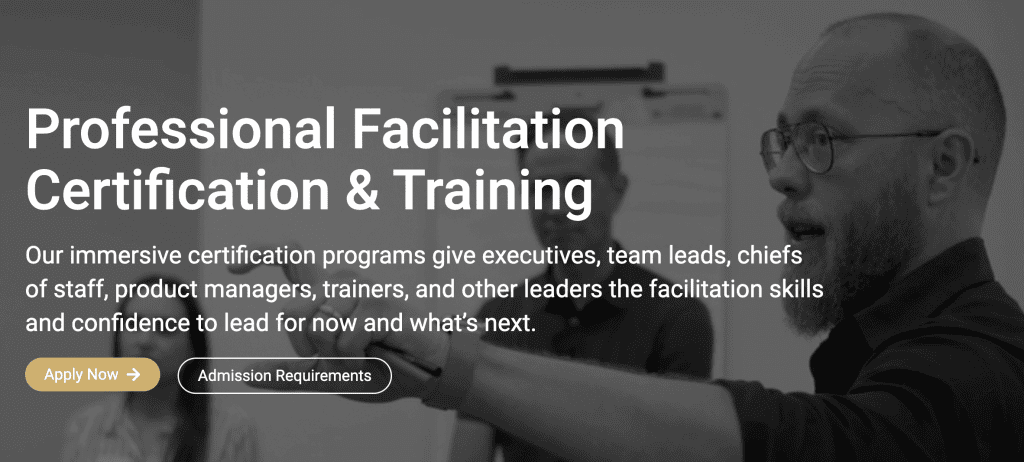
#7. Certified Professional Facilitator by IAF
The CPF is a professional designation for IAF members who demonstrate competency in the IAF Core Competencies for facilitation. Facilitators must document their experience and demonstrate knowledge and skills in applying these competencies.
This certificate is renewed every 3 years through a follow-up process. It's not a course you can complete - you can learn more about the assessment process here.
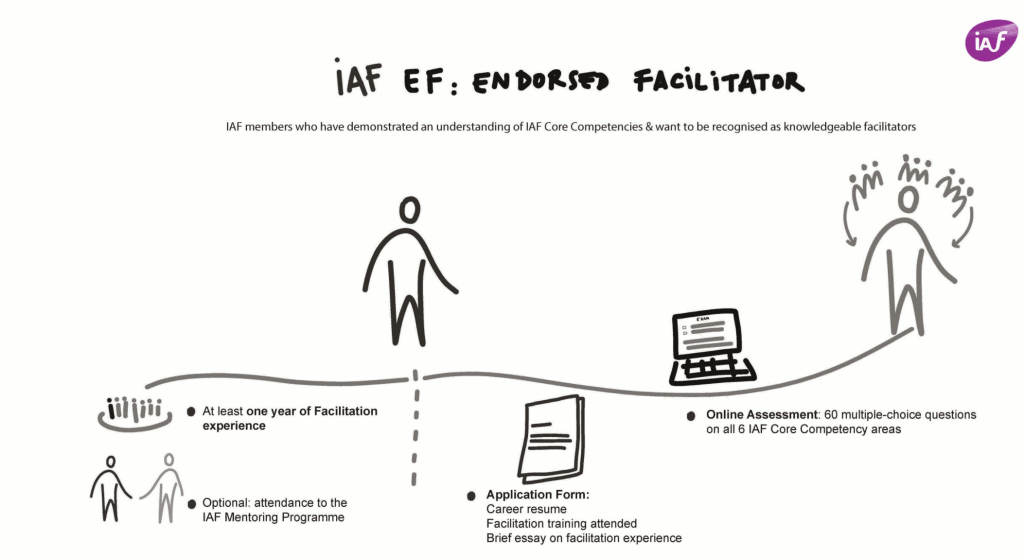
5 Ways That AhaSlides Assists in Facilitation Training
- Using spotlight slides (slides that ask participants to choose between red, orange, and green lights) can easily gauge participant readiness and help set the pace of the presentation. They also help to check the understanding of a particular topic after it has been discussed.
- Using open-ended slides with emojis gives participants a chance to freely express plans and opinions with a fun twist. During the Brain Jam, the facilitators used these slides to elicit participation promises in a way that was "a little more seamless than it usually happens in person".
- Using slides with anonymity helps to address questions that might be a little too personal in an in-person setting. A facilitator would never (or at least, should definitely never) ask a live group to disclose their sexual orientation, and might expect a 0% answer rate if they do. Brain Jam revealed that adding anonymity to this exact question during virtual facilitation got a 100% answer rate.
- Using vanishing options is a great way to narrow in on a result from a wide consensus. Facilitators can ask a question with multiple choice answers, then eliminate the least popular answer, duplicate the slide and ask the same question again with one fewer answer. Doing this repeatedly, and hiding the votes to prevent bandwagoning, can bring about some surprising results.
- Using the Q&A slide type is a great way to encourage participants to set the agenda for the meeting. These open-ended slides don't just allow everyone to propose topics, but the 'thumbs up' feature also lets them vote on which proposed topics they most want to discuss.
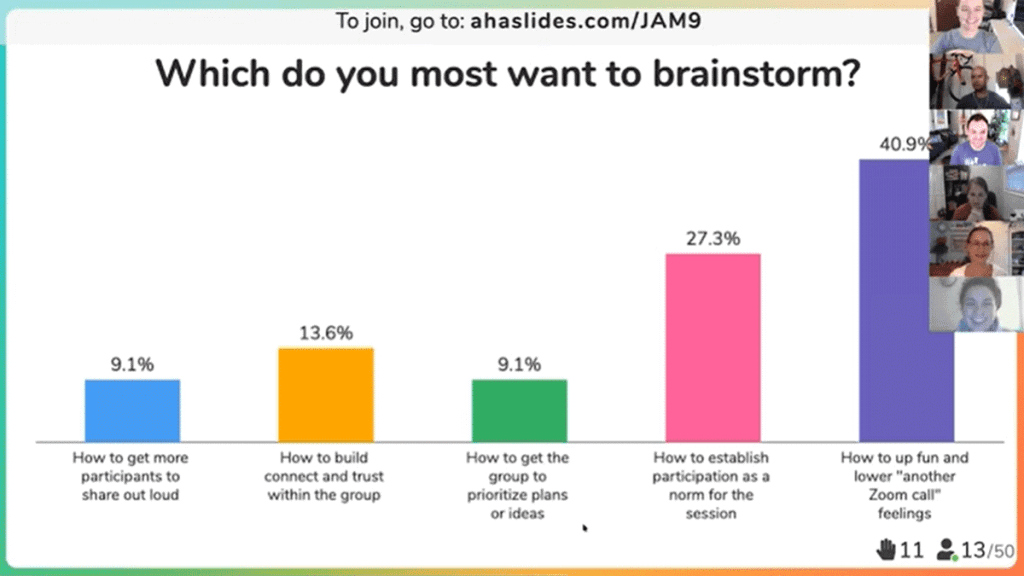
What really started to shine, and was remarked on several times during the Brain Jam, was how much fun it is to use AhaSlides to collect all kinds of input: from creative suggestions and ideas, to emotional shares and personal disclosures, to clarification and group check-in on process or understanding.
Sam Killermann - Facilitator Cards
To that end, a mixture of AhaSlides and Facilitator Cards can be the perfect strategy. Both facilitation solutions focus on making meetings engaging and productive by using clear visuals, live polls and out-of-the-box activities.
Key Takeaways
As more workplaces inevitably begin experimenting with remote work alongside in-office work, we as facilitators will need ways of engaging with our participants in both settings.
Remember, choosing the right course is just the beginning. Practice, experiment, and don't limit yourself! Explore shorter workshops, local programs, and even free resources like podcasts and blogs to fill your facilitation toolbox. Remember, the best learning happens when you're actively engaged and curious.

